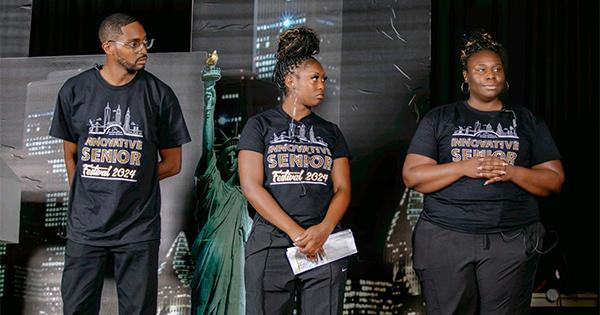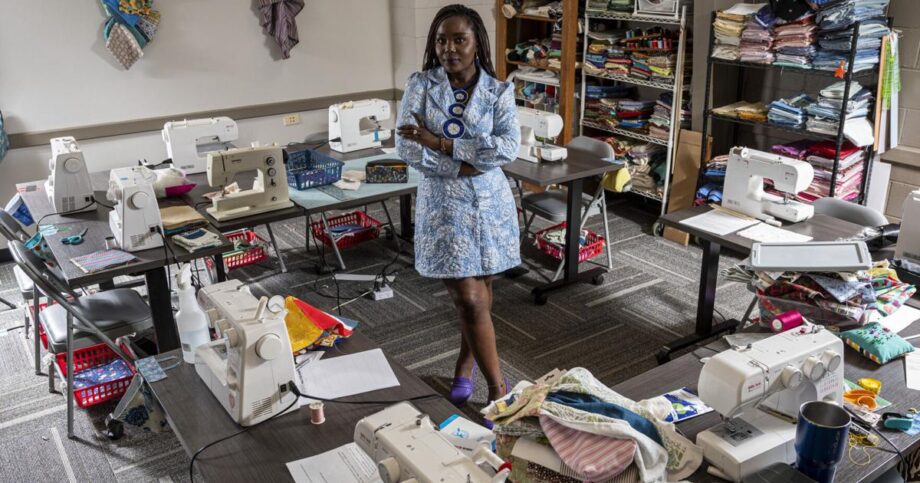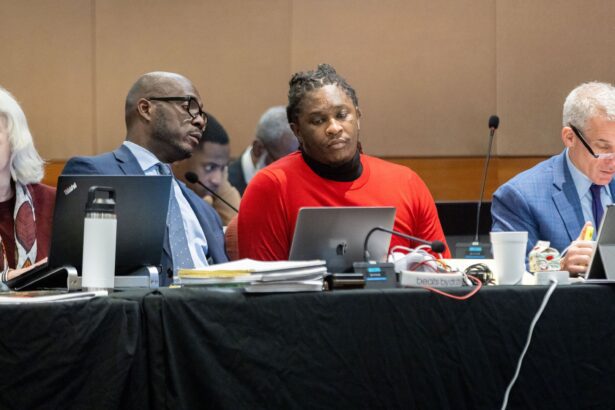On June 19, 1865, Northern troops set foot in Galveston Bay, Texas. They announced that the last enslaved people — more than 250,000 in total — were freed from slavery as a result of the Emancipation Proclamation declared two years earlier.
The National Museum of African American History and Culture considered the day, nationally recognized as “Juneteenth,” to be the country’s second Independence Day for the newly freed Black Americans who endured slavery for more than 400 years.
Claire-Marie Owens’ paternal ancestors were a part of that 250,000.
On her mother’s side, Owens’ great-grandparents settled in the Treasure Valley. Like many other African Americans in the state, she is a fifth-generation Idahoan.
People are also reading…
Growing up, she celebrated Juneteenth with her family by throwing barbecues and spending time together in honor of the fateful day nearly two centuries ago.
“It was always something that I was aware of,” Owens, from Boise, told the Times-News.
This year, the Juneteenth celebrations will continue in the Treasure and Magic valleys.
Juneteenth Idaho hosted a week of events last week, from a family skate night to a “Loving Day Mixed Mixer,” honoring the legalization of interracial marriage in the U.S.
The Magic Valley Juneteenth committee will host an event on 5 p.m. Wednesday at Sweet T Cupcakery where guests can enjoy food, dancing, networking, live musical performances and poetry.
In Boise, Juneteenth celebrations began in the 1990s to provide a safe space for Black Idahoans to honor the holiday and network with others in the community. Back then, the city-wide celebrations weren’t much more than an impromptu barbecue in the park, Owens said.
In 2019, Juneteenth was taken over by The Black Liberation Collective, a group of Black transgender youth and activists who hope to “generate support, cultivate thriving, and sustain aliveness for (their) kinfolk” through values “rooted in ancestral wisdom, youth-led innovation, abolition, and healing-centered liberation,” according to the organization’s official website.
Under the collective’s leadership, Juneteenth celebrations included a Black market where Black-owned businesses could sell and promote their products. Famous Black leaders such as Angela Davis visited and spoke to attendees during the festival.
In 2021, Juneteenth became a federally recognized holiday, and Juneteenth Idaho was founded after The Black Liberation Collective disbanded. Owens took the helm of organizing annual Juneteenth events in Boise and funding others across the state.
Then, Owens checked in on Winnie Christensen, the director and president of Culture for Change, a local youth organization that engages the community through social, cultural and educational events.
Winnie Christensen, organizer of the upcoming Juneteenth event, pauses for a photo Friday, June 14, 2024, in Twin Falls. The sewing room is used as part of her Culture for Change Foundation. Juneteenth is June 19.
Originally from Kenya, Christensen immigrated to Idaho at 16, first living in Blackfoot and moving south as she grew older. Her first taste of community outreach and advocacy was through the Miss Africa Idaho pageant, which she directed for six years.
Understanding that there was a disparity between the youth and mental health, she strived to provide opportunities for students of various demographics and backgrounds in the community.
Christensen gained a deeper understanding of the youth in Idaho when she learned about “third-culture children” — the children of refugees and immigrants who are born in America but struggle to maintain the various ways that they express themselves to their parents, friends and community.
She and her colleagues learned that the youth wanted safe spaces to talk about their experiences and connect with others who are like them. They just want to be together, she said. Thus, Christensen founded Culture for Change.
“I figured out that Idaho has a different beat to its drum…,” she said. “We need to listen to our youth and our community.”
Christensen and Owens met while taking a leadership course at Conservation Voters of Idaho, graduating together. They soon learned that they shared the same goal — “creating positive Black and BIPOC spaces that are functional and bridge the gap between different demographics, cultures and socioeconomic backgrounds,” Christensen said. They became fast friends.
“(Claire) knows how to fundraise and find people, and I know how to bring people together,” Christensen said. “We’ve been working together ever since.”
The first Juneteenth event in Twin Falls happened in 2020 at the beginning of the COVID-19 pandemic. Juneteenth Idaho and Culture for Change funded the event, while Christensen and Brandon Connolly, president of Southern Idaho Pride, hoped to create a safe space for members of the Black community to be themselves without needing to explain their existence.
“We were so nervous, Brandon and I,” Christensen said. “It was at a park. We contemplated calling the police so they would have a car on standby in case someone heckled us.”
Christensen, Connolly and the guests danced, ate food and talked about the state of the world. They released the stressors of what comes along with being a Black person in America just being themselves, Christensen said. This release was especially needed as the country became more aware of police brutality and the Black Lives Matter Movement rose in awareness and popularity.

Winnie Christensen, organizer of the upcoming Juneteenth event, talks about her foundation during a photo shoot Friday, June 14, 2024, in Twin Falls.
Following the success of the first Juneteenth event, Owens and Christensen reached out to other people in their communities, such as Michael Patrick, the owner of Phat Patz Surf and Soul. They forged collaborations that help bring the Juneteenth celebrations and other events to fruition.
Although there is a Juneteenth office in the E Street Community Center as an extension of Culture for Change, Owens and Christensen want to find a building where Culture of Change can expand and house a dedicated space to organize and plan Juneteenth and other community outreach events.
Christensen also said that a lot of Black people in the community get tokenized and feel the need to explain themselves and who they are.
“You don’t need to want to explain yourself,” she said. “You should be who you are without feeling that pressure.”
Owens explained that usually, some people who aren’t apart of the Black community don’t understand why it’s important to celebrate Juneteenth. There is a level of safety that the community needs to feel safe and secure.

The Idaho Senate is considering a new bill that would prohibit diversity, equity, and inclusion (DEI) positions and offices in higher education.
“We aren’t a political organization,” Owens said, “but our events are often politicized. Just (us) existing, just having these events can ultimately feel like a threat to a lot people, especially in the current political climate and the way DEI (diversity, equality, inclusion) is being attacked…
“Traditionally, our events are very underground… We do a lot of things to make sure that our community feels safe and protected and to make sure that they can celebrate without having to worry about their physical safety.”
Ultimately, Juneteenth is a celebration of freedom from slavery as it recognizes the community that future generations built despite the trauma their ancestors endured.
“Juneteenth is important because it is good for the community to understand the true meaning of freedom,” Christensen said.
In the years she spent advocating for her community, she learned that there is a rich Black community in Idaho, but they don’t know each other. She strives to get to know the people in her community and connect them with each other.
“I think if we (all) met and shared resources, it would be nice,” Christensen said.
Owens says she learned the value of working in the community and collaborating with other people.
“Just being in community with so many amazing Black women, organizers, business owners, artists, musicians, and trans folks has made me a better person. I’m so grateful this community exists.”
Eden Turner covers education and politics for the Times-News. She can be reached at 208-735-3241 or [email protected].




